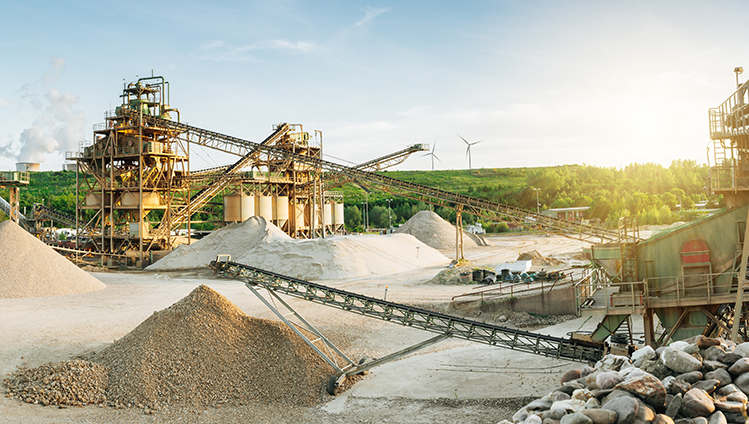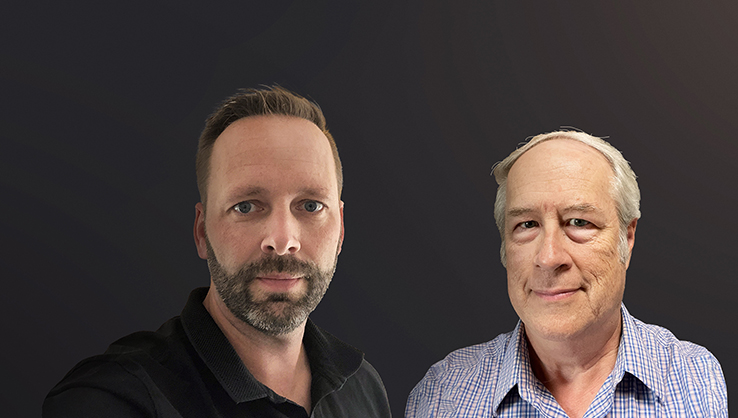Putting a clear focus on sustainability, with achievable targets in a set time frame, is essential for mining companies to remain competitive and operative in a dynamic, ever-changing market. Optimising operations, reducing emissions and minimising waste are just some of the ways mining companies can work towards carbon neutrality.

Continental is helping companies become more sustainable while reducing their environmental impact – with everything from high-quality conveyor belts that replace trucks to sustainable solutions that reduce on-site clean-ups and contaminations.
Continental itself is striving for climate-neutral production of scope 1 (direct emissions from vehicles, fuel use and chemical leakage) and scope 2 (indirect emissions from electricity, cooling heat or steam) by 2040, and 100% carbon neutrality and circular economy across the entire value chain by 2050 at the latest. These targets also benefit our customers and their scope 3 emissions, as Continental continues to reduce emissions that are not directly within the value chain of our customers.
“The key to our approach is embracing sustainability as an opportunity and as a key driver of innovation. We use it to challenge ourselves to develop new products and services that benefit the environment while offering improved quality, durability and performance.”
Adolfo Kropf-Eilers, Platform Head, Conveying Solutions at Continental
Conveyor belts replacing trucks
On large mining sites, both above and below ground, Continental conveyor belts are a viable, sustainable and energy-efficient alternative to truck transport. Continental has installed long-distance conveyor belts in Australia, Indonesia, North America, South Africa and elsewhere across the world, helping companies to phase out the use of trucks and reduce emissions as a result.
An excellent example of this is the “Dune Express” conveyor belt designed to optimise the delivery of proppant from the Atlas Energy Solutions sand mine in Kermit, Texas, to the northern Delaware Basin in New Mexico. The total system is 67.6 kilometres long, which includes a world record single conveyor belt flight length of 26.4 kilometres without a mid-booster drive. This one-of-a-kind conveyor belt, once fully operational at the end of the year, is expected to significantly reduce fuel emissions caused by transportation. Find out more about this project here.
Sustainable products
Continental is continuing to expand its range of innovative products that help to reduce waste and improve efficiency. These include ContiClean, a non-stick solution that helps prevent material from sticking to belts. ContiClean offers superior material release for everything from coal to iron ore, to help reduce clean-up efforts and ensure an extended lifetime of the belt.
Another product that helps mining companies save energy is ContiPipe, a closed-pipe system for securely transporting potentially hazardous materials such as chemicals, waste, ash and dust. ContiPipe has the dual benefit of protecting the material conveyed against environmental conditions (rain, snow and wind) while also protecting the environment from the material conveyed. With low friction, ContiPipe is energy efficient, and it also reduces trips made by trucks, helping to lower emissions.
The enclosed Sicon pouch system works on a similar principle, primarily for transporting very dusty materials and preventing particles from entering and polluting the surrounding environment. Sicon is extremely effective with steeply rising topography and can also negotiate tight curves and narrow areas.
Innovative materials
Continental’s comprehensive approach to sustainability starts with the selection of materials. Our High Energy Polyester is a new material being used to replace nylon in conveyor belts and industrial hose fabrics. The advantage is that 17% less energy is needed to produce one kilogram of High Energy Polyester compared with one kilogram of nylon. This leads to a reduction in CO2 emissions generated during the production of the yarn. To make the solution even more sustainable, we are considering a recycled version of High Energy Polyester that is similar to other recycled PET products being developed by global industrial yarn suppliers.
For conveyor belts, Continental has developed energy-optimised rubber compounds for the pulley covers of its Eco Series. These compounds minimise rolling resistance on the conveyor belt system, significantly reducing energy consumption and emissions during operation. Depending on the final system design, the Eco Plus conveyor belt can achieve energy savings of 15% compared to a standard conveyor belt, while the Eco Extreme can achieve savings of up to 30%.
Energy labelling and impactful services
Continental is the first conveyor belt manufacturer worldwide to identify its products with an Energy Efficiency Label. The label helps operators make informed decisions to lower their energy consumption when selecting conveyor belts. Depending on the rolling resistance of the compound used in the conveyor belt, the energy efficiency ranges from class A (best energy saving) to class G. The rating is supported by a number that provides the relative measurement of the energy efficiency factor. Lower energy consumption helps to reduce operating costs and has a positive impact on the conveyor belt system’s carbon footprint.
An important aspect of sustainable operations is extending product lifetime. Continental offers a range of services for monitoring systems and on-site inspections of conveyor belts. The data from these services is available at any time in the Conti+ 2.0 app, which bundles both static and dynamic data on one centralised platform. This enables predictive maintenance and condition monitoring, which in turn helps to reduce downtime and increase the lifetime of the belt.
Additionally, Continental offers services for the reuse, recycling and reconditioning of conveyor belts and individual components.
“As a supplier for a variety of important industries, we have a responsibility to use more sustainable materials and to develop products and solutions that address the challenges our world is facing. This includes manufacturing all our products based entirely on sustainable materials by 2050 at the latest. This ambitious goal reinforces our commitment to circular economy and green operations.”
Anne Windberg Baarup, Head of Sustainability at ContiTech
Back to the overview










